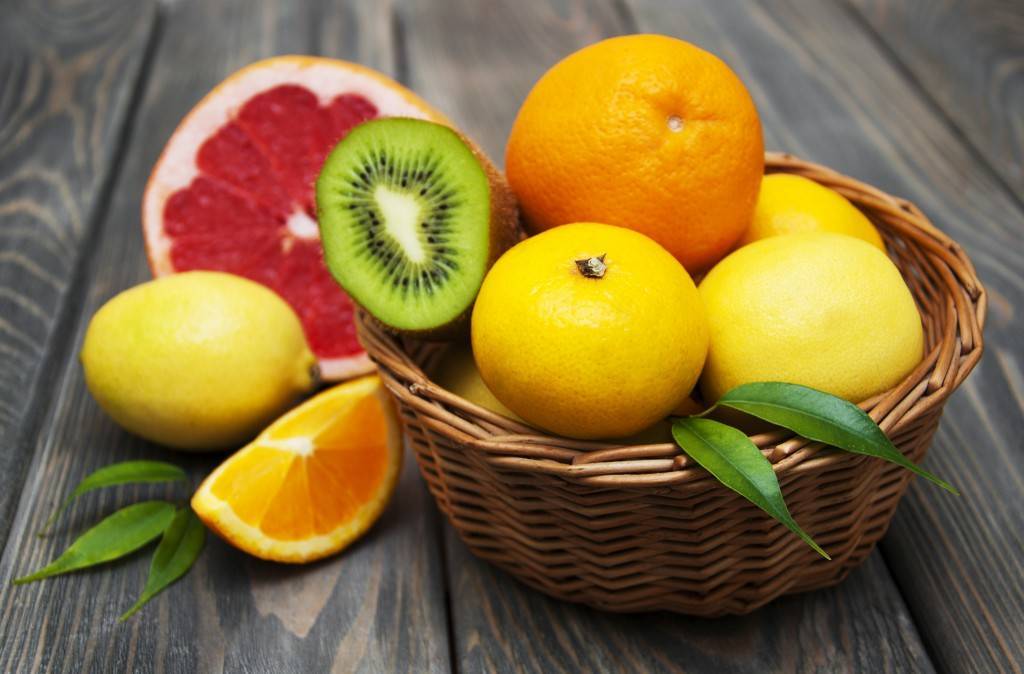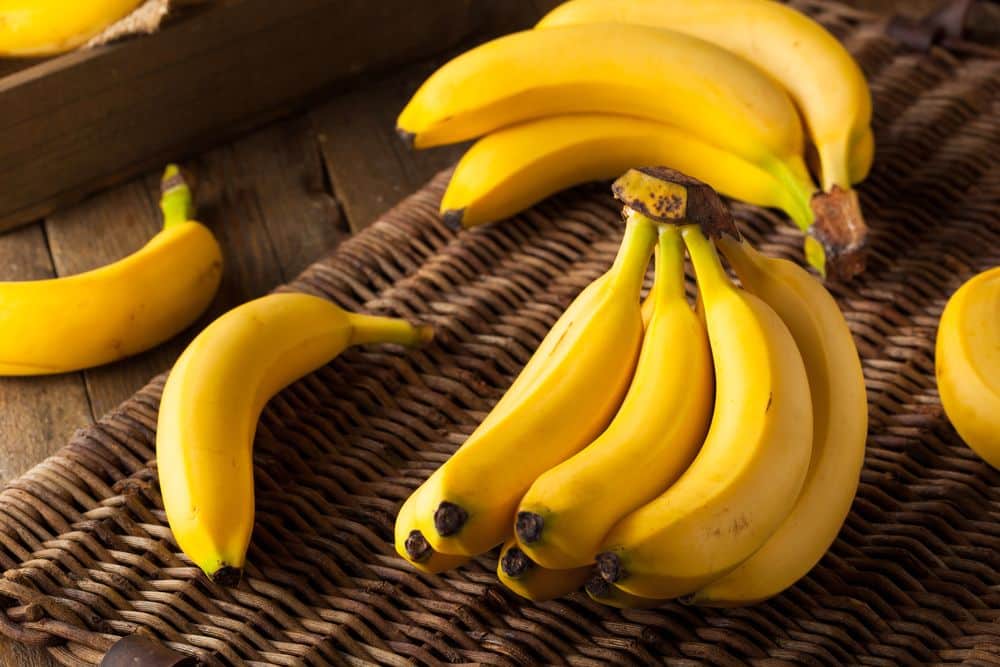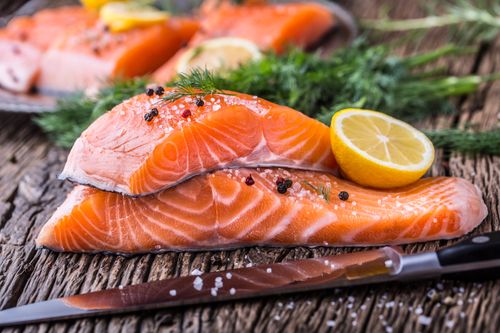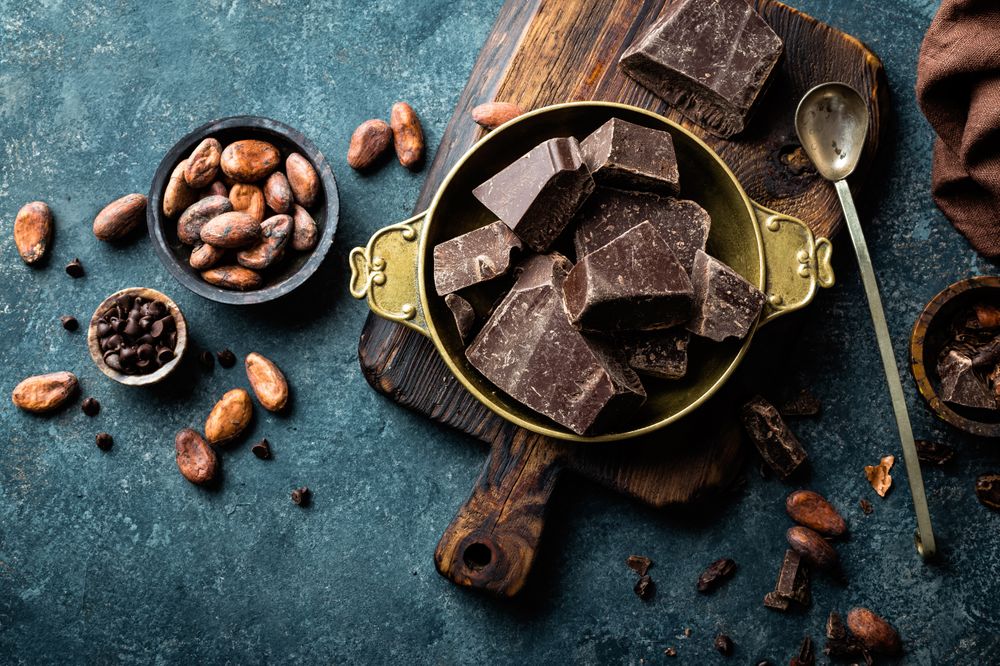Ways to Control High Blood Pressure without Medication

Hiral Patel
October 12, 2022

Hiral Patel
October 12, 2022
Blood pressure is the pressure produced by blood on the artery walls as it flows through the body. Various physiological systems regulate blood pressure. For example, nerve and hormone signals from the heart, blood arteries, brain, kidneys, and digestive organs affect blood pressure. High blood pressure is a potentially fatal problem that damages the heart.
It affects one out of every three people in the United States, one out of every four adults in India and one billion people across the globe. In addition, if not controlled on time, it increases the risk of different heart diseases and stroke. To treat high blood pressure, changing lifestyle plays a vital role.
You can prevent, delay, or minimise medications with a healthy lifestyle.
As per studies, regular exercise for around 150 minutes per week or about 30 minutes for 4-5 days per week can drop the blood pressure by 5 to 8 mm Hg. However, stopping exercise halfway through can lead to increased blood pressure again. Therefore, being consistent with exercise is essential.
In case of elevated blood pressure, exercising prevents hypertension. It reduces the stiffness and tension in blood vessels. As a result, the blood flows more freely and decreases blood pressure. Additionally, regular exercise strengthens and improves the efficiency with which the heart pumps blood. That results in lowered blood pressure in the arteries.
Walking, jogging, cycling, swimming, and dancing are all forms of aerobic exercise. They can help you reduce your blood pressure. High-Intensity Interval Training (HIIT) is also a good form of exercise that you can do daily. Strength exercise can also help you lower your blood pressure. So you can incorporate strength training workouts for a minimum of two days a week. You can also consult your doctor about starting an exercise routine.
Several public health initiatives and many social serving organisations aim at a regulatory control on less use of salt in the food industry. As per several studies, high salt intake may lead to high blood pressure and cardiac problems, including stroke. Consuming excess sodium-rich foods may increase blood pressure because it holds excess fluid in the body. That creates an added burden on the heart. Too much sodium will increase your risk of stroke, heart failure, osteoporosis, stomach cancer and kidney disease.
Cutting down on sodium intake lowers the blood pressure by 5 to 6 mm Hg. The impact of sodium on blood pressure differs from person to person. However, you should limit sodium intake to no more than 2,300 milligrammes (mg) per day. A lower sodium consumption of 1,500 mg or less per day is preferable for most adults.
There are different ways to limit sodium intake. First, read the labels on the foods you buy. If possible, substitute low-sodium foods and beverages in your regular diet. Avoid your intake of processed foods. Natural foods have only a small quantity of salt. The majority of sodium is added during the processing of food. Try to limit adding salt to your food. The sodium content of a teaspoon of salt is 2,300 mg. To add flavour to your cuisine, use herbs or spices. Take it slowly at first. If you don’t think you’ll be able to reduce your sodium intake overnight, reduce it gradually.
Alcohol consumption can cause blood pressure to rise. As per studies, alcohol is responsible for 16% of all occurrences of high blood pressure worldwide.
In addition, the renin-angiotensin-aldosterone system (RAAS) is affected by alcohol use. The kidneys are in charge of the RAAS, which regulates blood pressure with three hormones: renin, angiotensin, and aldosterone. Alcohol increases the renin hormone in the bloodstream and narrows the blood vessels.
Renin also reduces the amount of fluid that your body excretes through urine. The greater fluid levels and narrowed blood vessels cause a rise in blood pressure.
Potassium is a vital element because it helps to get rid of extra sodium through urine and thus helps to maintain sodium level.. Potassium helps in proper muscle functioning. It helps the muscles of the heart to work efficiently. It relieves stress in the walls of the blood vessels, lowering blood pressure even more.
Vegetables, particularly leafy greens, tomatoes, potatoes, and sweet potatoes, and fruits, such as melons, bananas, avocados, oranges, and apricots, are high in potassium. You should also consume dairy products. Other potassium-rich foods like salmon and tuna, seeds, nuts, and beans are also good.
Caffeine is a vasoconstrictor, which shrinks blood vessels and raises blood pressure. Caffeine can elevate blood pressure by up to 10 mm Hg amongst people who don’t consume it frequently.
However, people who regularly drink coffee may have little or no change in their blood pressure. It may also prevent your arteries from remaining as broad as they need to be for balanced blood pressure.
Incorporating healthy food into a daily diet can significantly change the blood pressure level. A healthy diet is critical for decreasing blood pressure and maintaining an appropriate healthy level. Having certain foods in your diet, mainly those high in crucial nutrients like potassium and magnesium, lowers blood pressure.

As per studies, citrus fruits, such as grapefruit, oranges, and lemons, reduce blood pressure. It is because they’re full of vitamins, minerals, and plant nutrients that aid in lowering heart problems like blood pressure and maintaining heart health.
Citrus fruits are high in phenolic compounds, vitamins, minerals, dietary fibres, essential oils, and carotenoids. In addition, several structural and compositional properties and biological effects, such as its antioxidant, anti-inflammatory and anti-hypertensive nature, and improved endothelial function, all prevent heart problems.
The endothelium is cells lining the blood vessels. Phenolic acids boost the health of these cells. It also relaxes and widens the arteries, leading to better blood flow. They work the same as blood pressure-lowering medicine called Angiotensin Converting Enzyme (ACE). It’s better to consume natural fruits than go for chemical-based medications.
In hypertensive rats, lemon juice and its crude flavonoid have shown reduced blood pressure. In addition, the water extract from peels of citrus fruits also exhibits beneficial results.

Keeping a low sodium intake helps to keep the blood pressure under control. Daily required amounts of potassium consumption may be equally important because of its widening effects on the arteries. Tomatoes are high in potassium, which aids in maintaining a healthy blood pressure level.
According to a study, eating a high-potassium, low-sodium diet reduces the risk of death from all causes by 20%. Potassium aids in the healthy functioning of muscles, including those responsible for heartbeat and breathing. Although consuming too much sodium can raise blood pressure, having very little potassium can do the same. It is due to the relationship between potassium and sodium. Consuming potassium removes excess sodium through urine. If the body does not get enough potassium, sodium is reabsorbed and retained by the body. Therefore, potassium deficiency leads to increased blood pressure and hypertension.

Potassium-rich foods can promote reduced blood pressure. For example, bananas are high in potassium while being low in sodium. Diets high in potassium and low in sodium lower the risk of high blood pressure, heart disease, and stroke.
High amounts of sodium in the body strain blood vessels and upset the body’s water balance. Consuming potassium-rich foods lowers kidney pressure and aids in the elimination of excess sodium in the body by draining it through urine. Potassium also keeps the blood pressure in check by controlling fluid and electrolyte balance in the body.

According to studies, omega-3 fats found in fatty fish offer considerable heart health advantages. These fats help to lower blood pressure by reducing inflammation and decreasing levels of oxylipins, which narrows blood vessels.

According to studies, flavonoids present in dark chocolate create nitric oxide, which relaxes blood arteries and lowers high blood pressure. So get high-quality chocolate with at least 70% cocoa content and eat a piece of around 5-10 grams every day.
The endothelium refers to the membrane covering of heart and blood arteries. Endothelial cells secrete chemicals that regulate vascular movements, along with enzymes that regulate blood clotting, immunological activity, and platelet adhesion. Damaged and improper functioning of these cells leads to hypertension and increased blood pressure. Flavonoids lower blood pressure by restoring endothelial function, either by its impact on nitric oxide levels or indirectly through other mechanisms.
Salt, or more precisely the sodium in salt, is a leading cause of high blood pressure and heart disease. It is due to how it impacts the balance of fluids in the blood. Prolonged excessive salt consumption tightens and narrows blood vessels. As a result, the supply of blood and oxygen to vital organs reduces. As a result, there is a lot of strain on the heart to pump blood throughout the body, raising blood pressure even more.
A few of the significant sources of sodium in people’s daily diet are bread and rolls, pizza, sandwiches, cold cuts and cured meats, and tacos.
Insulin resistance increases over time as insulin levels grow. Due to the failure of the body to respond to insulin, the body does not absorb magnesium. Therefore magnesium leaves the body through urine. Once the magnesium levels are very low, the arteries fail to relax completely. It increases the tension in the arteries and results in increased blood pressure.
Consuming much fructose sugar may prevent nitric oxide production in blood vessels. However, it increases the level of uric acid in the body, further resulting in elevated blood pressure. Nitric oxide is the most significant vasodilator. It aids in the maintenance of blood vessel flexibility, and when its levels suppress, the blood pressure rises.
Some of the high in sugar foods are cookies, cakes, pastries, ice cream, frozen yoghurt, candy, etc.
Cheese is high in protein and calcium, but it also contains a lot of saturated fat and sodium. It means that consuming too much can increase your risk of cardiovascular disease by raising your cholesterol and blood pressure.
Blood pressure medications, such as angiotensin-converting enzyme (ACE) inhibitors, are frequently used to lower blood pressure. However, making lifestyle adjustments, such as dietary changes, can help in significantly bringing down blood pressure and other related heart problems.
Therefore, it is always advisable for patients with high blood pressure, especially those using blood pressure drugs, to eat a healthy diet.
A: People suffering from high blood pressure can eat a diet rich in whole grains, fruits, vegetables, and lean protein foods. You should limit sodium intake and increase potassium intake. This eating strategy is Dietary Approaches to Stop Hypertension (DASH).
A: You should avoid foods rich in sodium. These foods include canned meat, fish or poultry, ham, pizza, canned soup, sausage, sardines, caviar and anchovies etc. You should also avoid alcohol. Both sodium and alcohol narrow and stiffen the blood arteries. It puts the heart under a lot of pressure to pump blood flowing in from constricted blood vessels.
A: Apple cider vinegar is one of the best drinks to help lower blood pressure. It is high in potassium. Therefore, it flushes the body with excess sodium and toxins. Additionally, it also regulates the enzyme rennin. The presence of the renin enzyme reduces blood pressure. You can consume it in the morning with honey and a glass of warm water.
A: Citrus fruits are an excellent go-to fruits for lowering blood pressure. They contain phenolic acids, which strengthens the functioning of endothelium cells. These cells are responsible for vascular movements. Phenolic compounds also relax and widen the arteries leading to an uninterrupted blood flow.
A: All citrus fruits are beneficial for heart health and especially blood pressure. Lemon contains flavonoids that boost the working of the endothelium. Therefore, it leads to better cardiovascular movements and a reduced strain on the heart while pumping blood.
A: Eggs don’t have any significant effect on blood pressure. If consumed in a limited amount, eggs are safe even with high blood pressure. However, you should note that excessive consumption of eggs can result in increased cholesterol. It becomes more challenging for the heart to pump the blood because of high cholesterol. It ultimately increases the blood pressure level.
A: Yes, bananas are suitable for high blood pressure. They are rich in potassium and low in sodium. Consuming potassium helps the body get rid of excessive amounts of sodium. Extreme sodium level stiffens and narrows the arteries. It obstructs the natural blood flow, further increasing stress on the heart during blood pumping.
A: Apple contains potassium which is beneficial in blood pressure control. A medium-sized apple has roughly 195 mg of potassium (4 % of the daily requirement). Additionally, they contain fibres. It helps with weight loss. Fibre slows digestion, making you feel full for longer and causing you to eat less overall. Consuming fewer calories regulates weight better, which is helpful for blood pressure control. Those overweight or obese are at a higher risk of having hypertension.
A: Drinking a lot of water does not significantly impact increased blood pressure. However, lack of water might have an impact. Due to the lower water content, dehydration causes the blood to thicken and makes blood pumping a strenuous process. In addition, renin is released by the kidneys when they are dehydrated. All these factors may lead to increased blood pressure.
A: Coffee contains caffeine, a natural vasoconstrictor. It narrows down the arteries and blood vessels and obstructs the normal flow of blood to the heart. As a result, it impacts the blood pressure level.
A: Yes. Tea contains flavonoids as well as caffeine. Both result in increased blood pressure.
A: It may not be possible to bring your blood pressure down immediately. However, some lifestyle and dietary changes may help in the long run. For example, you can start exercising daily, lower sodium intake, eat healthy, lose weight, avoid alcohol and caffeine, quit smoking and control chronic stress.
A: Exercise reduces blood vessel stiffness, allowing blood to flow more freely. That reduces blood pressure. A study revealed that thrice 10-minutes walks per day were more beneficial than one 30-minutes trek in preventing a future rise in blood pressure. However, it does not have a sudden impact on your blood pressure.
A: Caffeine, acute stress or anxiety, some medications (such as nonsteroidal anti-inflammatory drugs), drug combinations, abrupt or acute pain and dehydration can lead to sudden high blood pressure.
A: Low magnesium level in the body is a leading cause of high blood pressure. However, soaked almonds are rich in magnesium. Magnesium leads to increased nitric oxide production, which signals the brain to relax the blood vessels. Therefore, it is healthy for people suffering from high blood pressure to eat almonds.
A: Grapes are rich in potassium. Potassium helps in the prevention of high blood pressure. Therefore, they are a portion of healthy food for patients with high blood pressure.
A: Potassium is an electrolyte that enables the kidneys to balance the sodium they absorb and retain. Cucumbers are rich in potassium and increase potassium levels in the body. As a result, cucumbers may assist in decreasing blood pressure.
A: Calcium, potassium, and magnesium in milk are essential in reducing blood pressure levels. Additionally, bioactive peptides are a type of protein in milk that improves blood pressure levels.
A: Yes. Honey is suitable for high blood pressure because it contains flavonols, antioxidants that may help to regulate your blood pressure. As a result, it further helps protect your heart health.
A: Green tea has a plethora of health benefits. For example, it can aid in managing high blood pressure by enhancing blood circulation. It also helps to minimise inflammation in the heart tissues. In addition, green tea is high in antioxidants, which help to keep your heart healthy. People with high blood pressure can drink a cup or two of green tea per day.
A: It is advisable for patients with high blood pressure to stay hydrated by having six to eight glasses of water each day. You may increase this amount when in a hot environment where the chances of dehydration are more.


Nice article. Needs more suggestions
How to control blood pressure